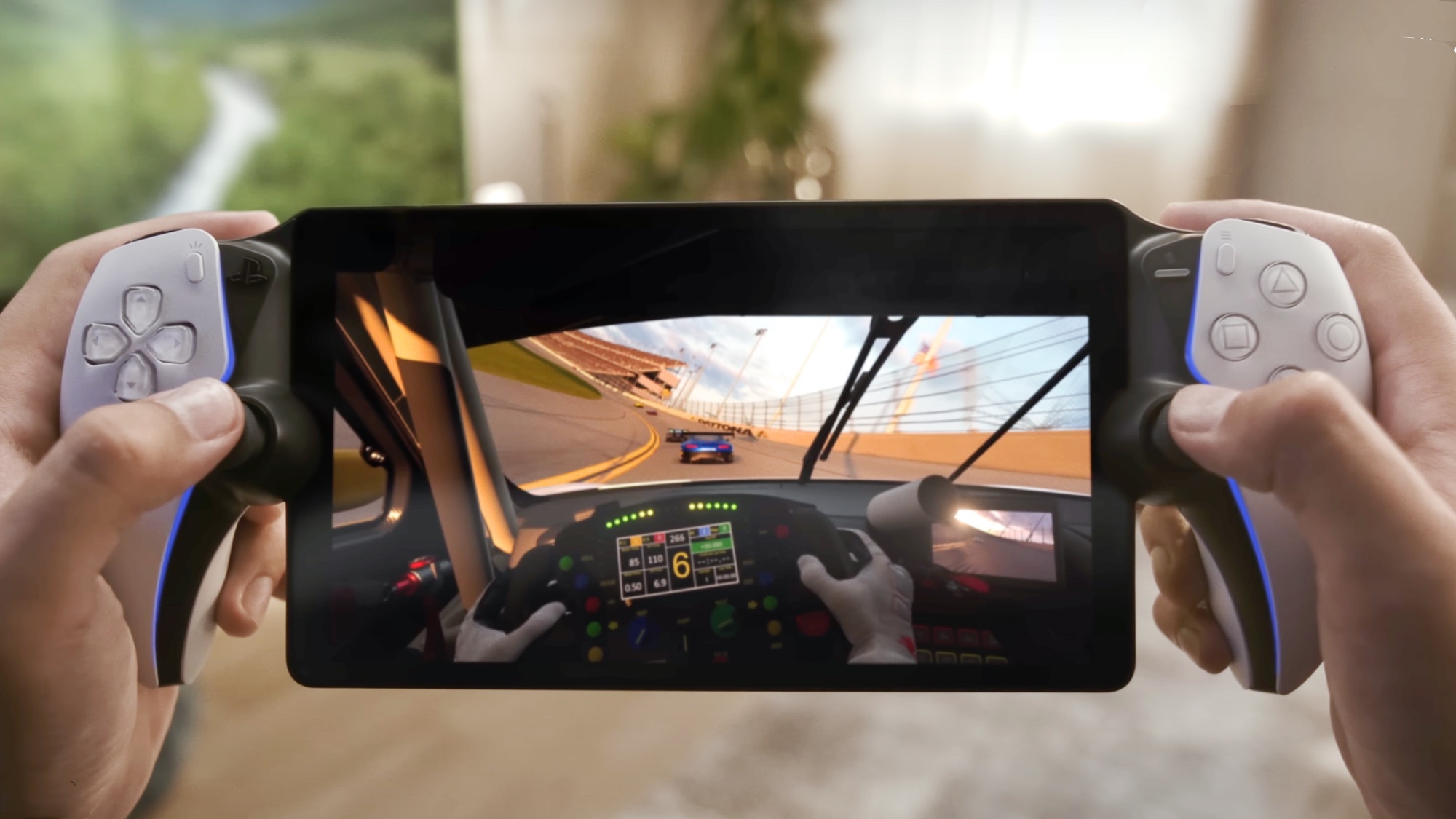HP Elite Dragonfly vs. Dell XPS 2-in-1 (2019): Which 2-in-1 laptop wins?
Battle of the premium 2-in-1 laptops
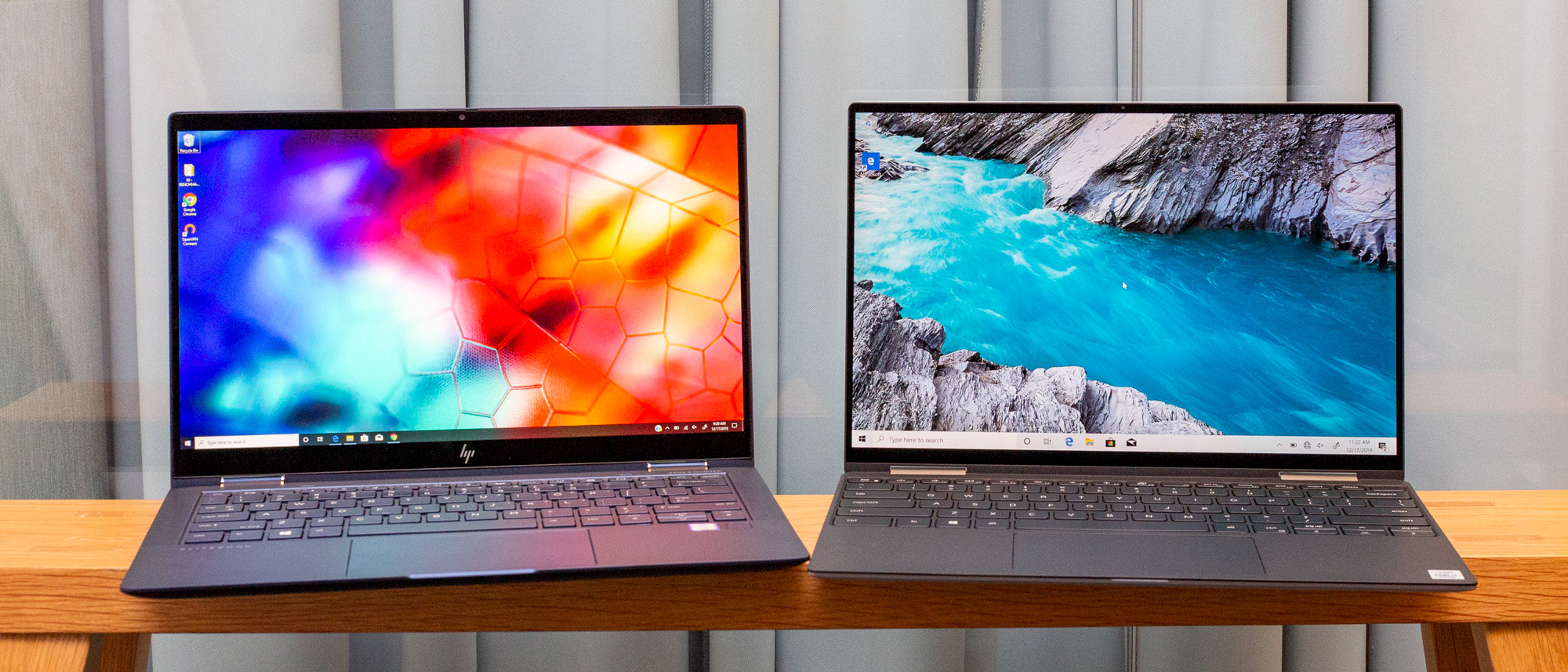
Now, this is a grudge match. In one corner, you’ve got our perennial favorite, the Dell XPS 13 2-in-1 (2019). It’s slim, extremely lightweight and very easy on the eyes. And the latest iteration comes with Intel 10th-gen processors and can be configured with a gorgeous 4K display. And depending on how you configure it, you can get nearly 11 hours of battery life.
In the opposing corner, you’ve got the HP Elite Dragonfly. Although it’s classified as a business laptop, the uber-slim, ultra-light chassis has premium laptop lovers doing a double take. But the Dragonfly is more than a pretty notebook, boasting MIL-SPEC-tested durability, more than 12 hours of battery life and a host of security features, including Intel vPro.
But there can only be one king of 2-in-1 laptops. Who will it be?
HP Elite Dragonfly vs Dell XPS 13 2-in-1 specs compared
| Header Cell - Column 0 | HP Elite Dragonfly | Dell XPS 13 2-in-1 (2019) |
|---|---|---|
| Starting price (as configured) | $1,549 ($2,169) | $999 ($1,597) |
| Display | 13.3 inch, 1920 x 1080 | 13.3 inch, 1920 x 1200 |
| CPU | Intel Core i7-8665U | Intel Core i7-1065G7 |
| RAM | 16 GB | 16 GB |
| Graphics | Intel UHD 620 Graphics | Intel UHD 617 Graphics |
| SSD | 512GB M.2 PCIe SSD/32GB Intel Optane Memory H10 SSD | 512TB SSD |
| Ports | Two Thunderbolt 3, HDMI 1.4, one USB 3.1 Type-A, nano SIM slot, headphone jack | Two Thunderbolt 3, microSD, headphone jack |
| Colors | Dragonfly Blue | Platinum Silver/Black, Platinum Silver/Arctic White |
| Size | 11.9 x 7.8 x 0.6 inches | 11.7 x 8.2 x 0.3~0.5 inches |
| Weight | 2.5 pounds | 2.9 pounds |
Design
The XPS 13 has a sublime beauty that I still enjoy, particularly its platinum silver/arctic white variation. Still, I do wish that Dell would give me this little beauty in gold or rose gold, but it’s pretty nonetheless. The silvery lid is made from anodized aluminum, while the white keyboard deck is made from lovely glass-weave fiber. As expected, the display is surrounded by teeny-tiny bezels – courtesy of Dell’s InfinityEdge design.
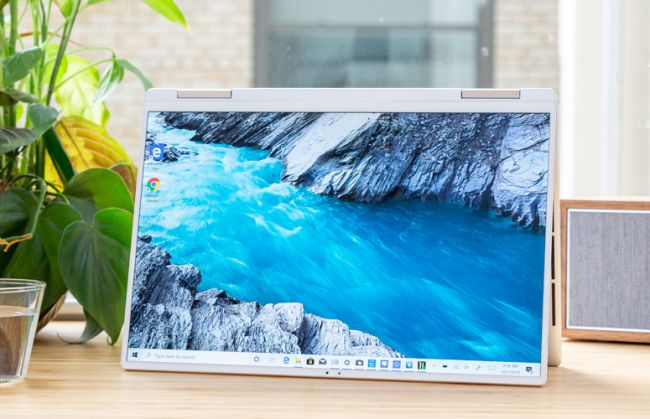
But not so fast! The Dragonfly is a stunner in its own right. Your eyes are immediately drawn to that stunning Dragonfly Blue CNC magnesium chassis: It’s simply captivating. The bezels are nowhere as slim as the XPS, but it’s better than most competitors. HP knows that less is more and only used a dollop of gleaming chrome to make the logo and add a thin strip to either side of the 360-degree hinges.
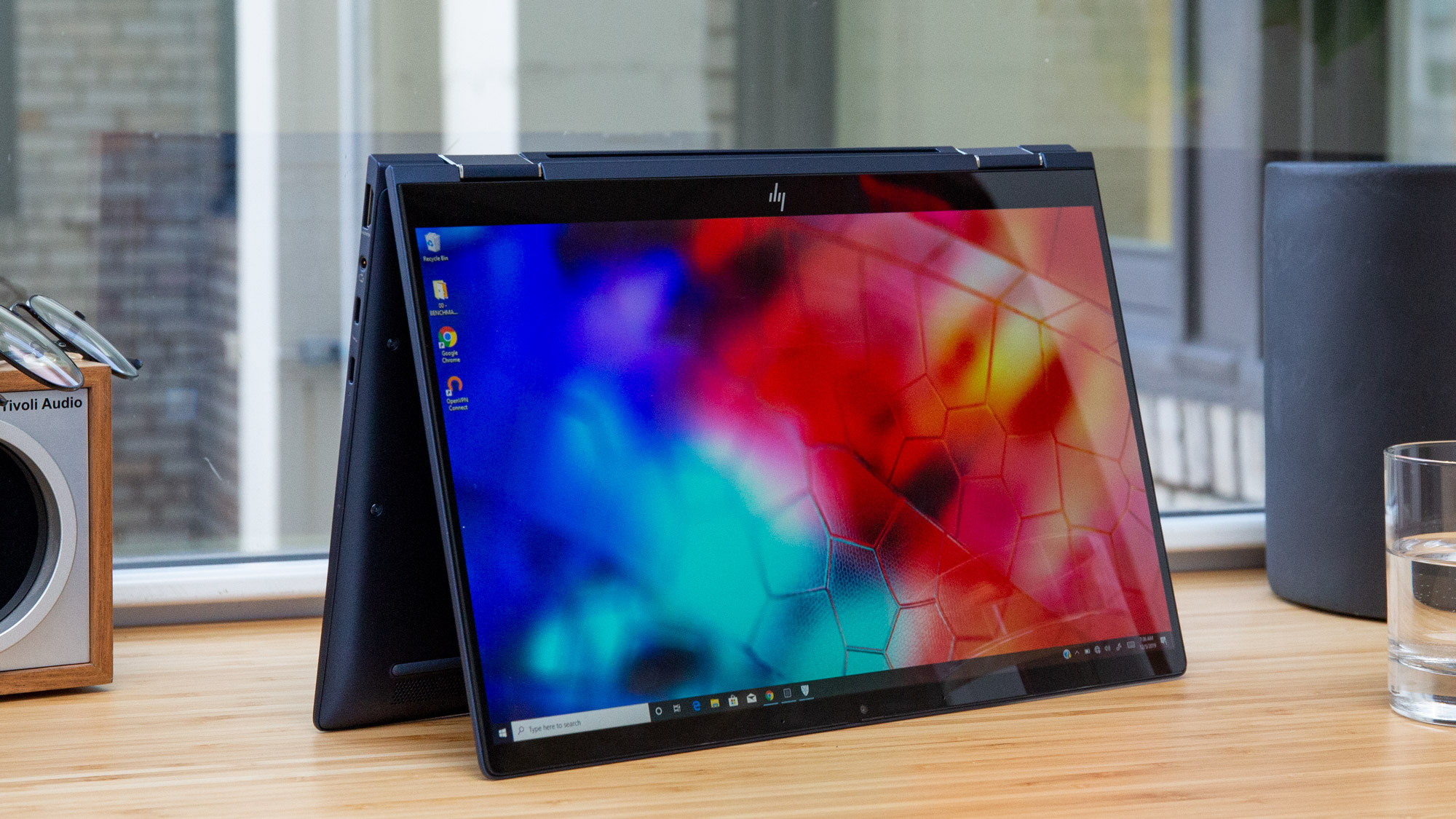
Speaking of which, both laptops seamlessly transition between traditional laptop, tablet, tent and presentation modes.
Oh, and just a quick word on the Dragonfly’s durability. The pretty system is a lot tougher than it looks, enduring 19 MIL-SPEC tests. That means that it can withstand extreme temperatures, altitudes, humidity, shock and vibration.
Stay in the know with Laptop Mag
Get our in-depth reviews, helpful tips, great deals, and the biggest news stories delivered to your inbox.
At 2.9 pounds, the 11.7 x 8.2 x 0.3~0.5-inch XPS 13 isn’t the lightest of devices, but it’s most certainly the leanest in the field. The 11.9 x 7.8 x 0.6-inch Dragonfly weighs a mere 2.5 pounds.
Winner: HP Elite Dragonfly
Ports
For such a svelte laptop, the Dragonfly has more ports than we’re used to seeing on an ultraportable. In addition to a pair of Thunderbolt 3 ports, you get a USB 3.1 Type-A Gen 1 port, a full HDMI 1.4 port, a nano SIM card slot and a headset jack.
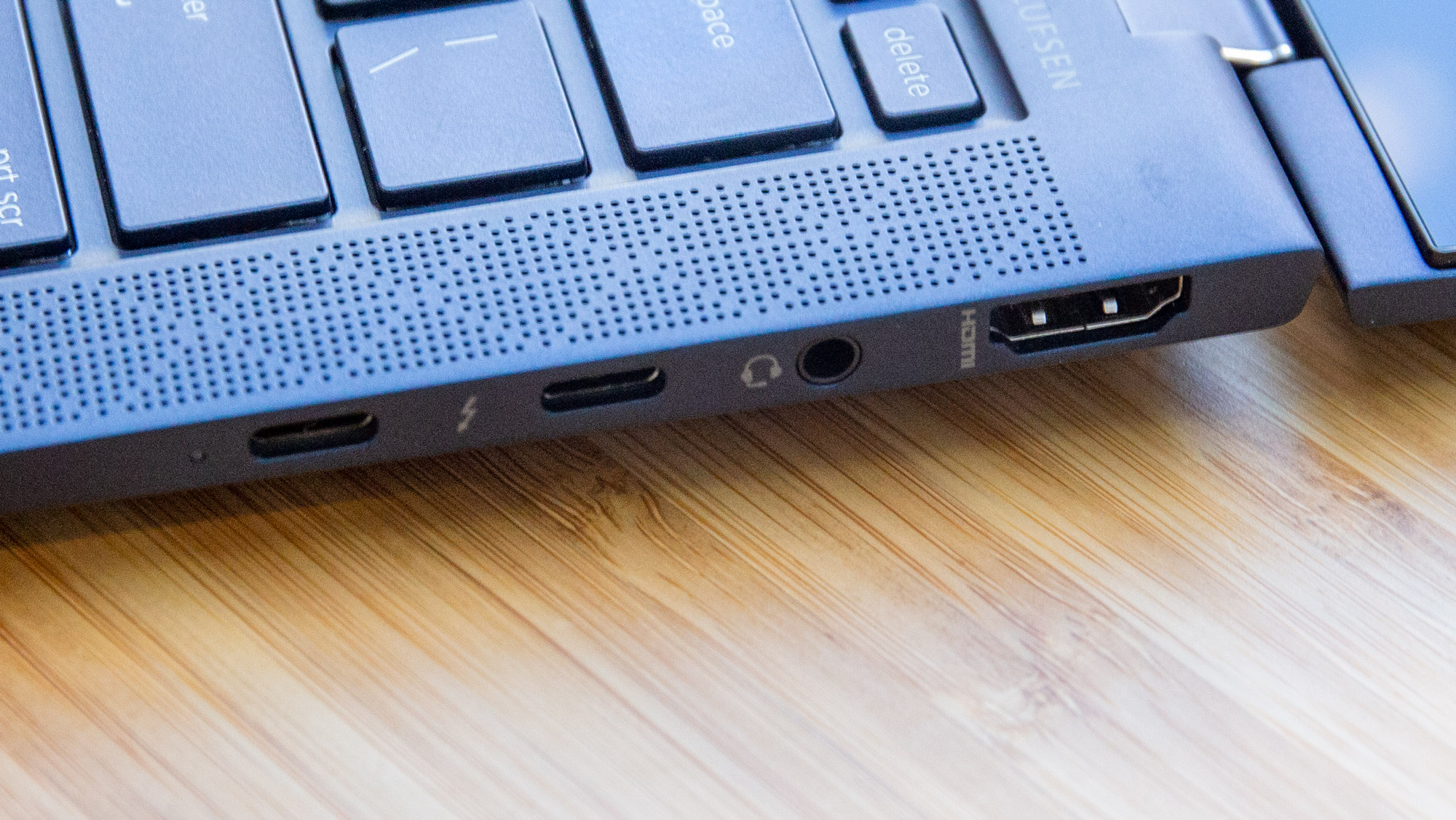
The XPS 13 has a noticeably smaller selection, with only two Thunderbolt 3 ports, a microSD card slot and a headset jack.
Winner: HP Elite Dragonfly
Display
The XPS 13’s 13.4-inch 1920 x 1200 touch display has a 16:10, which, when combined with the InfinityEdge bezel, gives the user more screen real estate to admire. The Dragonfly has a more traditional 16:9 aspect ratio to match its 13.3-inch, 1920 x 1080 touch panel.
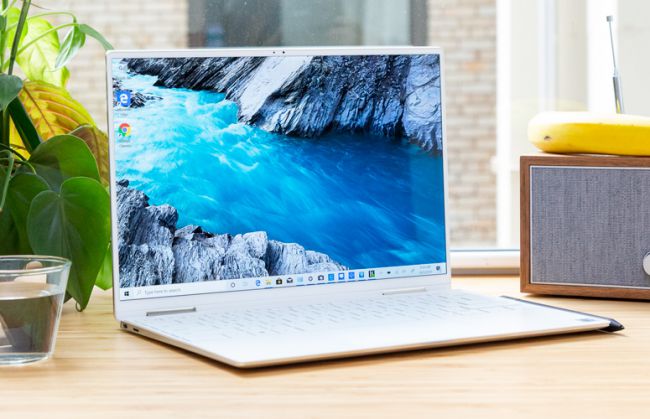
When we measured for color reproduction, the XPS 13 was within spitting distance of the Dragonfly, scoring 113% to the HP's117%. But when it came to brightness, there’s no contest: The Dell averaged a dazzling 516 nits of brightness compared to the Dragonfly’s 373 nits.
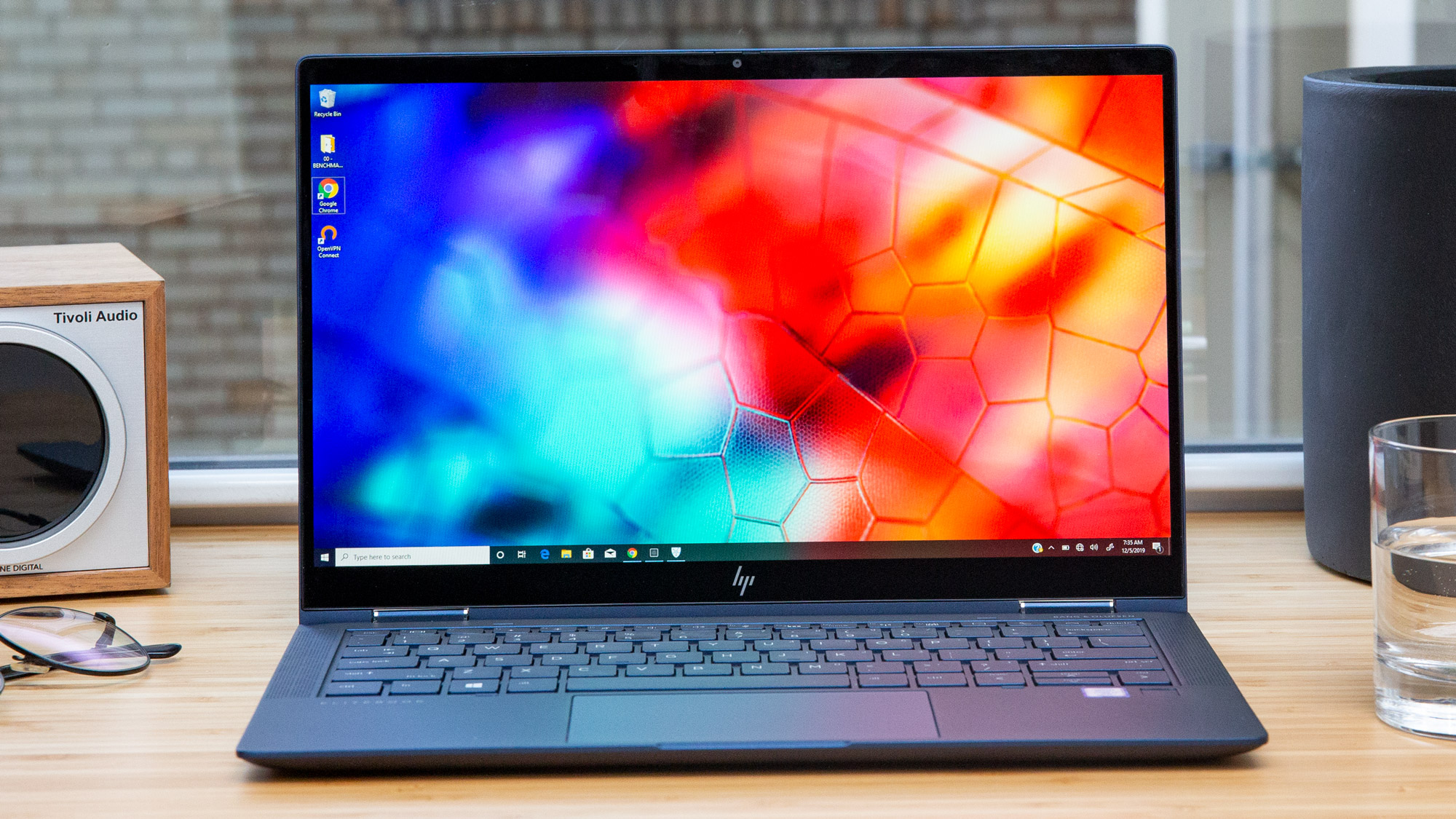
Although both displays are great for watching movies and videos,the Elite Dragonfly had an edge here. Watching The Photograph trailer, the Dragonfly’s screen was noticeably more vivid, which made actor Y’lan Noel’s bronze skin gleam in relation to the corrugated, gray background. However, details were sharper on the Dell, which allowed me to clearly see the small pockmarks in said gate.
Winner: Dell XPS 13 2-in-1
Keyboard
The one thing I don’t like about ultraportables is the keyboard. They never offer as much feedback as I would like, and they tend to be very shallow. In a type-off between the XPS and the Dragonfly, I preferred the latter, as it provided clicky feedback and made sure I never bottomed out. The XPS 13’s keys were a little more shallow, which made typing somewhat uncomfortable.
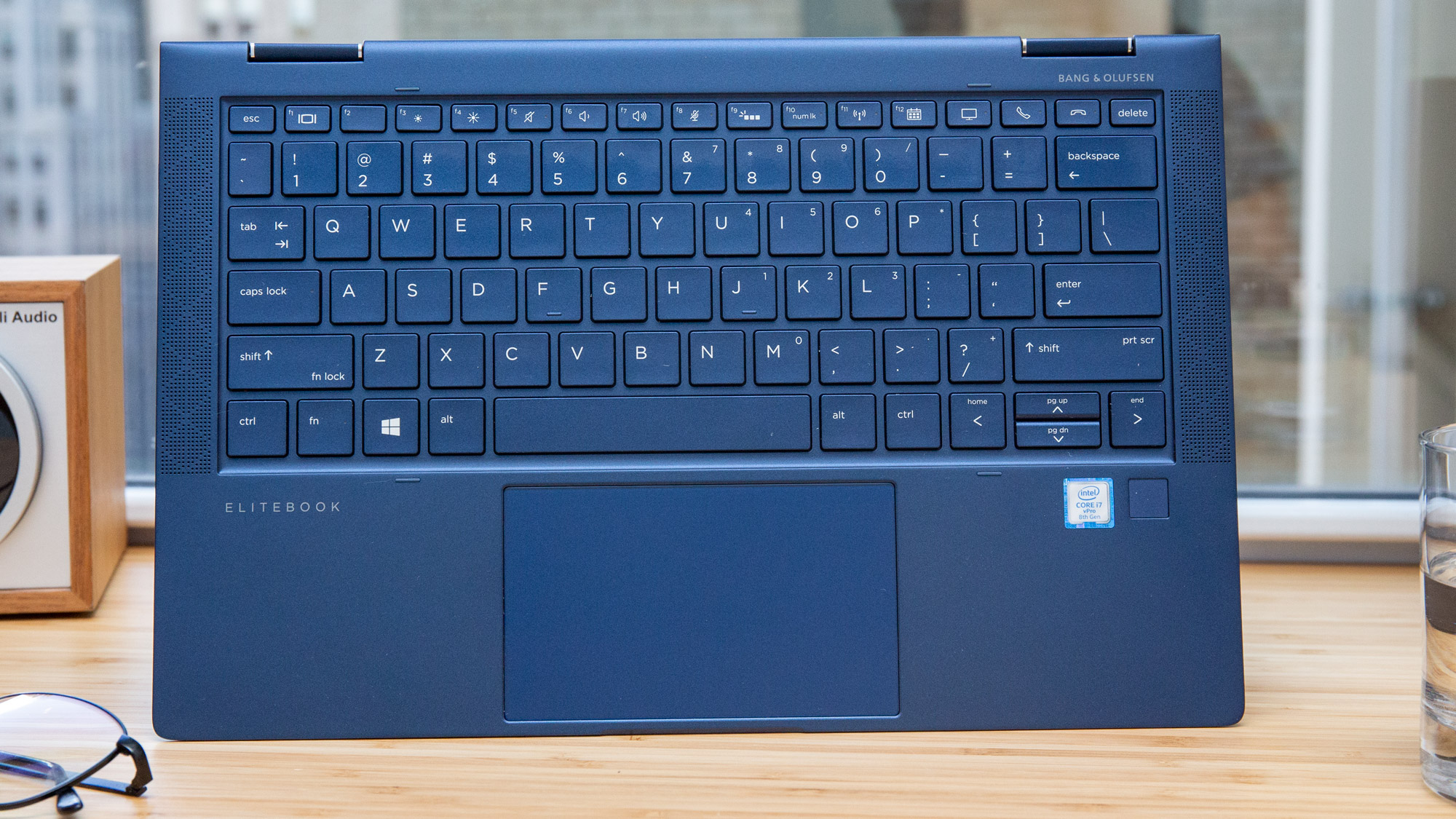
On the Dragonfly, I scored 72 words per minute on the 10fastfingers typing test and 70 wpm on the XPS 13.
Winner: HP Elite Dragonfly
Performance
The XPS 13, with its 1.3-GHz Intel Core i7-1065G7 CPU, and the Dragonfly, with its 1.6-GHz Intel Core i7-8665U processor, both passed our real-world, multitasking test with flying colors. These 2-in-1 laptops ably streamed an episode of Astronomy Club on Netflix with 15 additional Google Chrome tabs running in the background.

But when we switched to our synthetic tests, there was a clear winner. On Geekbench's 4.3 overall performance test, the XPS 13 achieved 19,225, the Dragonfly reached 14,071.

The XPS 13 took 24 minutes and 49 seconds to transcode a 4K video to 1080p on the Handbreak test. However, the Dragonfly was slightly faster at 22:23.
During the File Transfer test, the Dragonfly’s 512GB M.2 PCIe SSD and 32GB Intel Optane 3D XPoint SSD took 12 second to duplicate 4.97 GB of mixed-media files, a transfer rate of 424.1 megabytes per second (MBps). The XPS 13’s 512GB SSD was just slightly faster at 463 MBps.
You won't be doing a lot of gaming with the Dragonfly’s integrated Intel UHD 620 GPU, but could do some light gaming in a pinch. The notebook scored 31 frames per second (fps) on the Dirt 3 benchmark, just a frame above our 30-fps playability threshold. The XPS 13’s Intel Iris Pro CPU notched 47 fps.
Winner: Dell XPS 13 2-in-1
Battery Life
Thanks to its four-cell, 56-watt hour battery, the Dragonfly has some serious stamina. The laptop lasted 12 hours and 25 minutes on the Laptop Mag battery test, which consists of continuous web surfing over Wi-Fi at 150 nits of brightness. The XPS 13 tapped out after 10:57.
Winner: HP Elite Dragonfly
Value
Neither laptop is what I’d call affordable, but Dell definitely has a lower entry point than HP does. The base model of the XPS 13 costs $999, which gets you an Intel Core i3-1005G1 CPU with 4GB of RAM, a 256GB PCIe NVMe SSD and an Intel UHD Graphics GPU. Our review unit costs $1,699 and bumps you up to a Core i7-1065G7 CPU, 16 GB of RAM, a 512 GB PCIe NVMe SSD and an Intel Iris Pro GPU. The $2,149 top-tier model doubles the RAM and storage, and gives you a 4K touchscreen.
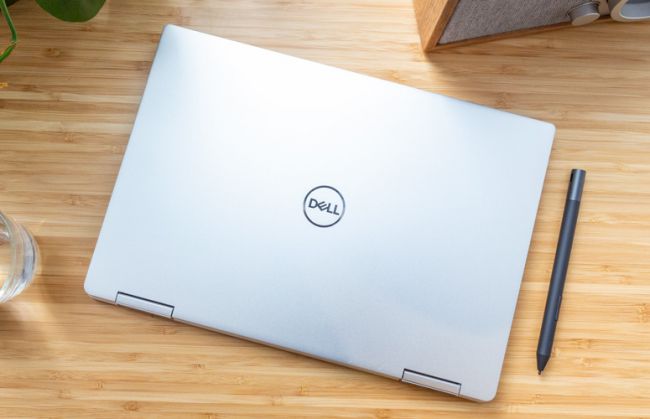
As a business notebook, the Dragonfly costs much more. The base model runs $1,629 and comes with an 8th-Gen Intel Core i5-8265U CPU, 8 GB of RAM. a 256GB PCIe NVMe SSD with 16 GB PCIe NVMe Intel Optane Memory, Intel UHD Graphics 620 GPU and a 1080p touchscreen.
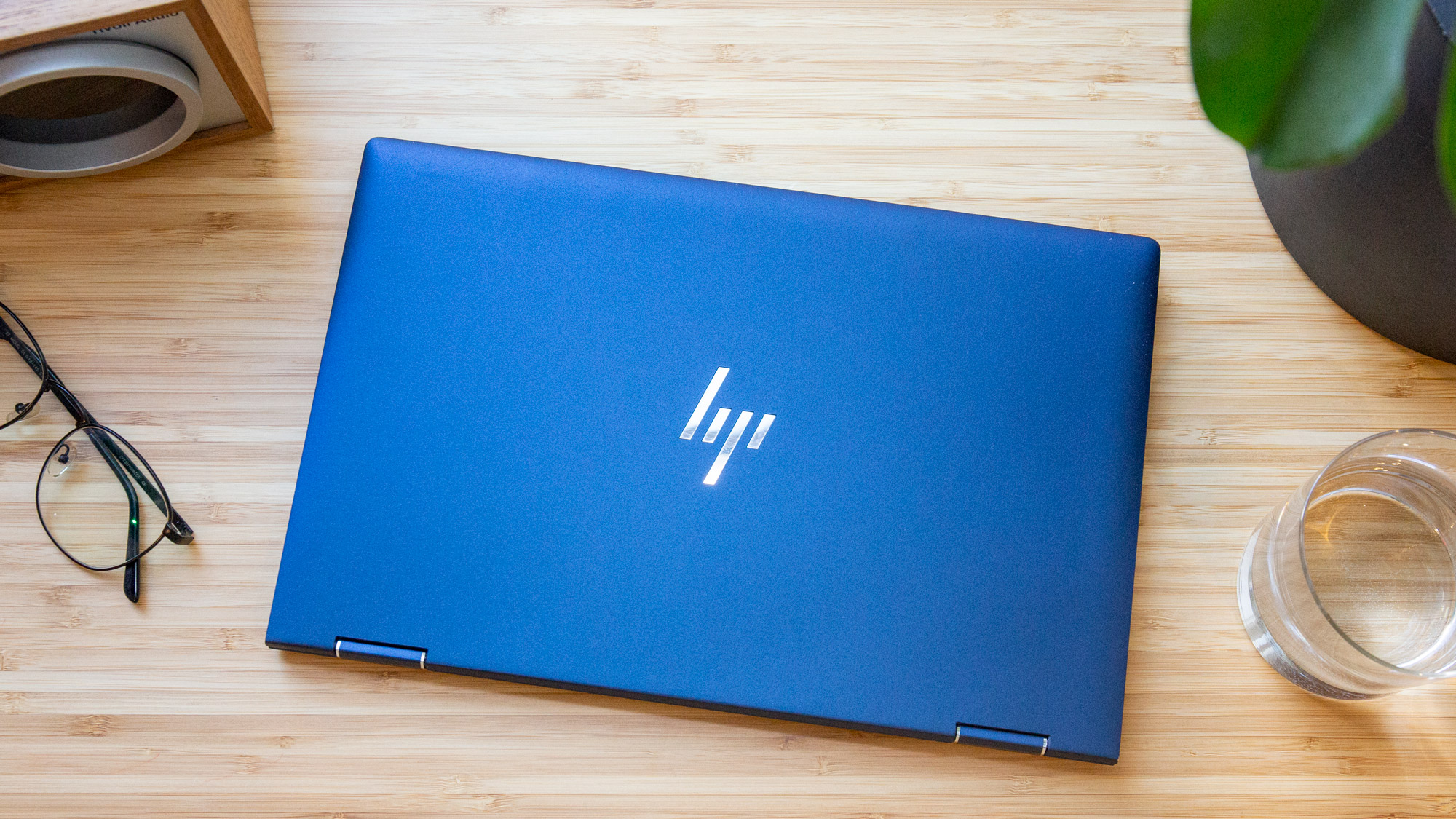
The $1,849 model adds a Core i5-8365U,16 GB of RAM, Intel vPro and a 1080p, 1,000-nit display with HP SureView technology. Not enough power? Check out our $2,169 review unit, which has an Intel Core i7-8665U CPU, 16 GB of RAM, a 512 GB M.2 PCIe SSD and 32 GB Intel Optane Memory H10 SSD.
Winner: Dell XPS 13 2-in-1
| Header Cell - Column 0 | HP Elite Dragonfly | Dell XPS 13 2-in-1 (2019) |
|---|---|---|
| Design (15) | 14 | 12 |
| Ports (10) | 10 | 5 |
| Display (15) | 12 | 14 |
| Keyboard (10) | 8 | 7 |
| Performance (20) | 15 | 18 |
| Battery life (20) | 19 | 15 |
| Value and configs (10) | 4 | 10 |
| Overall (100) | 82 | 81 |
Overall Winner: HP Elite Dragonfly
This is a serious upset. With its stunning, yet durable chassis, host of security features, abundance of ports and long battery life, the HP Elite Dragonfly has dethroned the reigning king of the 2-in-1s. But let’s not discount the Dell XPS 13 2-in-1, which is a better value, with a brighter display and stellar performance. Both laptops would be a great addition for your tech lineup, but the Elite Dragonfly has a lot to offer between its featherweight chassis.

Sherri L. Smith has been cranking out product reviews for Laptopmag.com since 2011. In that time, she's reviewed more than her share of laptops, tablets, smartphones and everything in between. The resident gamer and audio junkie, Sherri was previously a managing editor for Black Web 2.0 and contributed to BET.Com and Popgadget.
